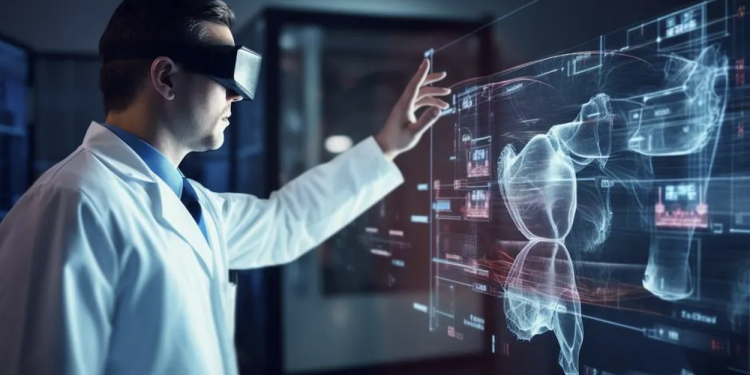Technology is changing healthcare in a big way, especially when it comes to preventing health problems. From gadgets that track your vitals to AI-powered diagnoses, technology helps us find problems sooner, monitor our health better, and improve patient outcomes. Things like lab tests at home have made it easier for people to take control of their health without going to clinics.
This post explains how technology is changing preventive healthcare, highlighting its impact on accessibility, early detection, patient engagement, and overall healthcare efficiency.
1. Wearable Tech for Health Monitoring
Wearable devices have become essential in preventive healthcare, giving us real-time information about our health. Devices like smartwatches, fitness trackers, and medical wearables monitor things like heart rate, oxygen levels, sleep patterns, and physical activity.
For example, a smartwatch might alert you to a potential heart rhythm problem, prompting a timely check-up with a doctor.
2. AI for Early Detection
Artificial intelligence (AI) has revolutionized preventive healthcare. AI algorithms can analyze large amounts of data to identify patterns and predict potential health issues before you even have symptoms. For instance, AI-powered tools can screen mammograms or CT scans with incredible accuracy, detecting early signs of cancer or other conditions.
3. Virtual Doctor Visits
Telemedicine has become a cornerstone of preventive care, especially after the pandemic. Virtual health consultations allow you to connect with doctors from home, removing geographical and logistical barriers.
In 2025, telemedicine platforms are using advanced technologies like augmented reality (AR) and remote diagnostics, making virtual visits more comprehensive.
4. Personalized Health Insights with Big Data
Big data analytics in healthcare has opened up new possibilities for personalized preventive care. By analyzing data from various sources, such as electronic health records (EHRs), wearable devices, and genetic testing, healthcare providers can create tailored health plans for you.
In 2025, healthcare systems are using predictive analytics to forecast health risks and recommend preventive actions, empowering you to make informed decisions.
5. Home-Based Diagnostics and Care
Advances in diagnostic technology have made it possible to access various tests and services from home. Portable diagnostic devices and services offering lab tests at home have eliminated the need to visit clinics for routine screenings. Home-based diagnostics make preventive screenings easier and encourage more people to be proactive about their health.
6. Genomics and Preventive Medicine
Genomics is another area where technology is making great progress. Advances in genetic testing allow you to understand your risk for various diseases, enabling you to take preventive measures tailored to your genetic profile.
For instance, genomic insights can guide you toward specific lifestyle changes. In 2025, genetic testing is becoming more affordable and accessible, making personalized preventive care a reality for more people.
7. Smart Health Apps and Digital Coaching
Mobile health apps are transforming preventive care by providing easy access to health resources, reminders, and tracking tools. These apps help you monitor your fitness goals, medication schedules, and dietary habits, ensuring consistency in your health routines.
In 2025, smart health apps are integrating AI-driven digital coaching, offering personalized advice based on your data.
8. Robotics and Remote Care
Robotics is entering preventive healthcare by enhancing precision and accessibility. Robots with diagnostic tools are being used in remote areas to provide basic health screenings.
In cities, robotic assistance is being used to deliver medications, collect diagnostic samples, and provide physical therapy, ensuring that preventive care reaches more people efficiently.
9. Enhancing Mental Health with Technology
Preventive healthcare isn’t just about physical health; mental well-being is also crucial. In 2025, digital mental health platforms are using AI and machine learning to provide personalized therapy, stress management tools, and early detection of mental health issues like anxiety and depression.
10. Addressing Health Disparities with Technology
One of the greatest benefits of technological advancements is their ability to address health disparities. In 2025, innovative solutions like mobile clinics, telemedicine, and portable diagnostic tools are bridging gaps in healthcare access for underserved populations.
Conclusion
Technology is undeniably transforming preventive healthcare in 2025. From wearables and AI-powered diagnostics to home-based services like lab tests at home, these advancements are making healthcare more accessible, personalized, and effective. By enabling earlier detection and promoting proactive health management, technology is empowering individuals to take charge of their well-being.
As innovations continue to reshape the healthcare landscape, the future of preventive care looks promising, with technology at its core. By embracing these advancements, individuals and healthcare providers can work together to build healthier communities.









